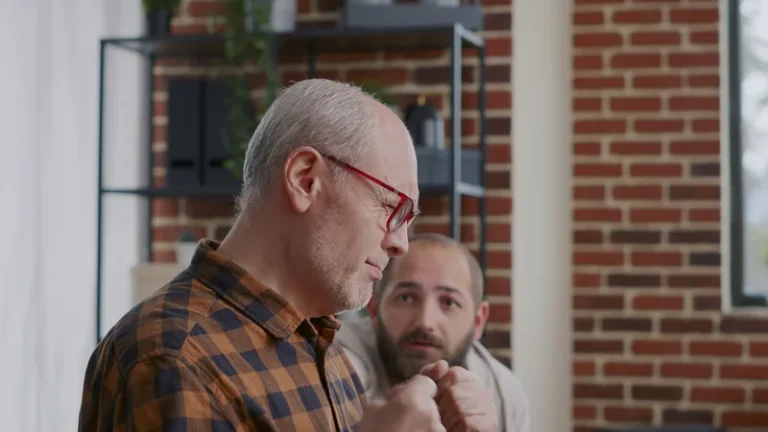Drug addiction recovery: How to successfully treat the problem?

People are flawed yet capable of great things. Sometimes people choose the wrong path and engage in harmful behaviors. However, everything can change if we want to. Drug or substance addicts can seek help and turn to the path of drug addiction recovery.
Luckily, there are many effective options to treat the problem and overcome addiction. Recovery from substance abuse takes time, but it’s essential to take the first step. This article focuses on how to stop doing drugs or to engage in alcohol abuse. You will learn about a few key moments that may help you or your loved ones.
Understanding why you became addicted
So, how to overcome drug addiction? There are many important factors, but two enable you to get started. First, admit that you have a problem. Second, it’s essential to understand what aspects have to lead to addiction.
Looking back and figuring out why you started abusing drugs is essential to prevent relapse in the future. The beginning of the addiction likely occurred due to the use of drugs for recreational purposes or because of a prescription by a doctor to treat a medical issue.
However, you start getting used to the substance, and the brain begins recognizing this state as normal. Substance abuse and dependence developed into an obsession with taking even more drugs. However, using drugs for an extended period of time can alter the human brain and have negative, long-lasting effects on health.
Thus, it’s essential to recognize the problem and seek external help.

Take back control of your life and start on the road to recovery now.
Steps for a successful drug addiction recovery
Once you understand something is wrong and experience a lack of life control, it’s time to ask for support. Many programs and support groups are dedicated to helping people with dependencies. So, how to get help with drug addiction? Consider asking friends or loved ones to help.
Together, it’s possible to find the best program or a solution to the problem. Here are a few critical factors to note about recovering from drug abuse:
- Intervention helps convince addicts that they have a problem. It’s a great solution if the family member doesn’t want to admit an issue.
- Detox is required to help with future drug addiction recovery. It reduces withdrawal symptoms and increases the success of rehab.
- Staying at a facility or asking for the assistance of a support group increases the chances of success. Many addicts go through detox and relapse. It’s critical to change the surroundings if the previous environment encourages substance abuse. Addicts can stay at facilities with professionals, attend meetings (like AA) to talk about their addiction, etc.
All things considered, a recipe for success in drug addiction recovery includes more than just detox. It often requires changing the environment and going to aftercare facilities. Attending meetings like Narcotics Anonymous are also very helpful. These groups have the necessary resources and provide mental support.
However, addicts may start a journey early on. The process requires going through a few critical phases, as described further in the article.

Admit the problem
The most important step of a drug addiction recovery process is admitting the problem. Be honest with yourself about the existing problems. Many believe they can stop anytime they want, and it’s not a problem. However, the opposite is correct.
The most critical thing is to be honest with yourself. The next step is administering the problem to family, friends, or co-workers. It takes courage to open up to friends or loved ones about the addiction and ask for help. But strength is not found in not addressing the elephant in the room: it is found in admitting flaws and seeking external assistance.
Accepting that you’re struggling and opening up to those you trust is the most important step in overcoming an addiction, no matter how difficult it is.
Seek support
Support does not necessarily have to come from AA (Alcoholics Anonymous) or other similar organizations. The source of drug addiction help could come from a friend, a co-worker, a relative, a doctor, or an online support group.
Most people believe in the importance of talking to someone about their problems. It holds people accountable and offers assistance when they require it. Talking to people with similar issues shows that there are many people who face similar struggles. These people understand what you’re going through, and people always feel better among people who know the problem.
Detox and withdrawal treatment
A very important step of the drug addiction recovery process is detox. A person can overcome the addiction without a detox, but it’s much harder. Detoxication enables people to think clearly. It’s easier to start the recovery journey when you don’t feel physical pain.
Drugs or substance abuse causes long-term changes in the way the brain functions and the nervous system. The human brain gets used to having almost constant drug access over time. Once addicts stop using drugs, the brain interprets this absence as an alarm. As a result, addicts experience withdrawal symptoms and the urge to proceed with taking drugs. Reducing or getting rid of these symptoms increases the chance of a successful drug addiction recovery.
While some people are lucky enough to experience mild withdrawal symptoms, others go through hell. Withdrawal can be so intense and long-lasting that an addict is almost forced to bounce back to unhealthy habits. Oftentimes people who don’t go through detox fall back to previous habits within just a few days. If professional help is inaccessible, it’s critical to turn to loved ones or friends.
Treat the entire problem
Recovery from substance abuse may take more time than you expect. Some people claim it’s a life-long process. However, there’s one critical factor to consider: stress. We all experience stress, but addicts may have a hard time not relapsing. Thus, it’s critical to treat the entire person, not just the addiction.
According to a 2013 study, there is a clear link between unemployment and increased substance abuse and binge drinking. However, unemployment is not the only condition associated with addiction. Other possible triggers are as follows:
- Experiencing trauma
- Poverty
- Witnessing violence
- Bad social skills
- Poor parenting care
- Lack of education
Many drug addiction recovery programs help find a job, get an education, rent an apartment in a safe space, etc. It’s a critical step to complete if you don’t have a safe environment. However, you should also consider how you react to stress and everyday issues. Stress won’t ever go away, but it shouldn’t affect your recovery.
It’s also essential to address issues that may have contributed to the addiction. Some people have witnessed violent behavior of their parents or relatives toward each other; others have become victims of abuse. Seeking therapy and professional support to talk about the trauma may help on the recovery journey.
Change your routine
We all have specific triggers in everyday life that cause us to bounce back to previous habits. However, people suffering from addiction should be aware of these triggers since they cause relapse.
Look back at your life as an addict. What was your routine? Perhaps, you had times when nothing was entertaining, and you were bored? Or were your neighbors not supportive of attempts to get better? It’s critical to change the routine so it suits the new lifestyle. The lack of change increases the chances of a relapse.

Know relapse symptoms
Setbacks will occur during the addiction treatment process. Relapse becomes a serious concern when you start to separate yourself from addiction and its detrimental effects on your life.
Recognizing the triggers that send you back to previous behavior patterns is the first step in preventing relapse. To prevent breakdown into addiction, practice avoiding times of weakness or vulnerability, removing yourself from temptation, and changing the environment which encourages abuse.
Take control of your life
Change of routine should lead to taking control of your life. People often aren’t ready to admit how much their drug addiction affected their lives and the lives of their loved ones. However, it’s an essential step to drug addiction recovery.
How can one admit their fault when they don’t have their lives in order? It’s essential to start improving as a person. You might have tasks or errands awaiting your attention. Perhaps, you haven’t cleaned up your home in ages. Or didn’t calculate your tax returns.
When everything is in order, people don’t feel stressed or pressured. They stay calmer and are ready to engage in difficult conversations with loved ones or friends.
Talking to loved ones and friends
Typically, addicts realize what they’ve done to their lives and the lives of their loved ones once they start a rehabilitation process. However, it’s also important to ask for forgiveness. It brings closure and the feeling of going full circle. This step also helps in gaining even more control over life.

This can be a difficult journey, but you don’t have to go it alone. Let us be your guide and provide you the environment needed to regain control of your life and begin the path to recovery.
Aftercare in Eco Sober Houses
Even after reaching maintenance, an addict is not necessarily free from their addiction. It’s a chronic ailment like diabetes or a chronic disease that needs significant lifestyle adjustments to manage.
People in rehabilitation must continuously exert intentional effort to keep sobriety. Aftercare aids in maintaining critical goals and putting what you learned in treatment into practice.
Attending an aftercare program in Eco Sober Houses for at least one or two years after going through drug addiction recovery is critical. Aftercare options encompass a nurturing community, a safe and accepting environment, and valuable mentorship.




